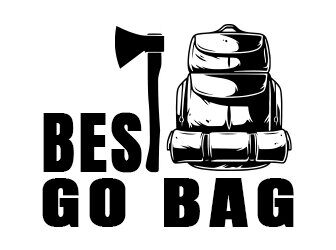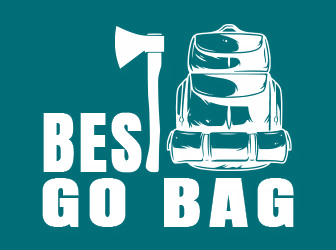We’re all creatures of habit. Some more so than others, but all of us tend to do the same things in the same ways. That’s what we’re comfortable with.
But as people age, they sometimes forget exactly how they did something. Especially if it’s been a while since they’ve done it. They’ll pick it up again quickly once they get back into the groove. But that first time after a “layoff” can be slow.
Most of us were doing a fair amount of travel prior to the COVID-19 pandemic. Maybe not a lot, but at least two or three times a year.
We got into a set routine of preparing for these vacations and business trips. We knew exactly what to pack and which bag to put it in. It became second nature to us. But many of us haven’t traveled for over a year.
If we’re planning some time away this summer, preparing for those trips might take a little longer. And there’s a chance we might forget to pack something we always used to pack without thinking about it.
Don’t leave home without… sleep
The item that comes to mind for me is a power bank. We take a variety of electrical devices with us on trips – cellphone, Kindle, games, etc. The last thing we want is for them to run out of juice when we need or want them.
I’ll give you my recommendation for an easy-to-carry, portable and affordable back-up power device in a moment.
First though, I’d like to provide you with some travel tips. Just in case you’ve forgotten them since the last time you traveled.
Regardless of how you’re traveling – air, auto, train or boat – get plenty of sleep in advance. Going into a trip in a tired state is a bad way to start. You won’t be thinking as clearly as you should be and your enjoyment level will drop off.
Travel by car
If you’re traveling by car this summer, make sure you put together an emergency supply kit to keep in the trunk. Here are five items I’d suggest including.
- Water. A no-brainer, right? Three gallons of clean drinking water should do the trick. If your water is in gallon containers, make sure you have plenty of smaller empty water bottles you can fill up and drink out of.
- Non-perishable food. You could survive for three days without food if you had to, but why do that? During a crisis, your body will need strength, so pack some items with a high calorie content. Don’t worry about fat content right now.
- First-aid kit. This kit should include bandages, anti-bacterial wipes, burn salve and wound-closure strips. Plus over-the-counter painkillers and lip balm. As well as a three-day supply of any meds you take regularly.
- Clothing. Include any items you would take on a three-day trip. Including socks and underwear, pants and shirts. Plus sweaters, a windbreaker and a heavy coat. As well as gloves and hat. Don’t forget a pair of hiking boots.
- Outdoor kit. If you have to leave your vehicle at some point during a crisis, you’ll want some objects to help you survive. Including fire-starters, paracord and a flashlight. And a hunting knife, tent, poncho, compass and duct tape.
Make sure the bag itself is sturdy because you may have to lug it around. You don’t want anything falling through a hole or getting wet from the elements. It needs to be large enough to hold all but large water containers. But light enough to carry.
Enhancing your road trip
Your auto trip could be enhanced by following the four tips listed below.
- Eat healthy snacks. You’ll probably stop for one or two good meals per day on your road trip. But you’ll also want to take along some in-between-meal snacks for nourishment and alertness. Make sure those snacks contain plenty of vitamins and nutrients. Nuts, fruits and vegetables will provide what you need.
- Stay hydrated. Although it will probably require an extra restroom stop or two each day, it’s important to keep yourself hydrated on the trip. Water and fruit juices are best. Caffeinated beverages should only be consumed if you need them to stay awake. They can be dehydrating.
- Plan interesting stops. There’s nothing that breaks up a long road trip like a few fascinating stops. It’s easier to stay upbeat when you have 100 miles to the next sight-seeing opportunity than 1,000 miles to your destination. Taking photos at each stop will enhance the vacation memory book you create.
- Chew and smell. By chewing gum, your blood circulation will improve despite your sitting posture. There are plenty of sugar-free gum choices out there. Also, having a peppermint scent handy is a good idea. Just take a whiff if you feel you’re becoming more tired than you want to be.
Travel by boat
Many people are taking cruises again. If you’re one of them, here are four tips to make your trip more enjoyable.
- Study the ship in advance. You might not be able to board a cruise ship in advance to check it out. But you can take virtual tours. Knowing where everything is on the ship ahead of time will save you considerable time in trying to find things. Especially if it’s a 15-deck ship.
- Know your ports. Knowing what a port offers in advance will go a long way to enjoying your eight hours or whatever it might be before you have to be back on the ship. Pick out three or four things you want to do at that port before you get there. Then make the most of your time.
- Pack intelligently. Limit yourself to what you believe you’ll need, leaving room in your suitcase for items you’ll want to purchase to bring back home. Pack clothes for the weather at various ports. Don’t forget a poncho.
- Check out alternative eating venues. Many folks on cruises – especially first-timers – automatically head to the main dining room or buffet each meal time. But many cruises have specialty restaurants you might enjoy. Especially during longer cruises when variety is more important.
Travel by train
Some folks prefer to travel by train. Here are a few suggestions if you’re going that route.
- Watch for deals. As with other transportation businesses, the train industry likes to entice travelers with deals. Start your search for a deal well before your departure date, then lock it in. Acquiring your tickets in advance should save you money and take that task off your plate.
- Choose your accommodations carefully. Depending on how long your train trip will last, this is an important consideration. The longer the ride, the more comfort you will require. Maybe you can sleep one night in a coach seat, but any more than that and you should probably book a bedroom that includes a private toilet.
- Check a large bag, hold onto a smaller one. When you’re packing, put items that you won’t need during the ride in one large bag and then check it. That way it’s secure and you don’t have to worry about lugging it around each time you venture from car to car. Keep items you’ll need during the trip in a smaller bag.
- Study your rest stops. Rest stops on train trips are great, as they give you a good chance to stretch your legs and see a few sights before re-boarding. Know where those rest stops are and what they offer in advance. That way you’ll know exactly where you want to head and what you want to see when you get off the train.
Travel by plane
As with other modes of transportation, it may have been awhile since you’ve flown. Here are a few reminder tips if you plan to get on a plane.
- Carry your vaccination card. If you’ve been vaccinated against COVID-19, be ready to prove it. Rules are changing all the time, and you never know when you may be asked to show it. If you’ve decided against vaccination, call ahead to the airline and any hotels where you’re planning to stay to see what their policies are.
- Keep a hand sanitizer in your carryon. In an airport and on a plane, you’ll be in close contact with many people. And you’ll be handling a number of things you don’t normally hold. Such as tray tables, beverage cups, etc. Use hand sanitizer whenever you feel the need.
- Don’t wear open-toed shoes. Even if you’re going somewhere hot, wear solid shoes that cover your toes on a plane. You’ll do a lot of walking in an airport and there are too many things inside a plane on which you could stub your toes. You can always change into more comfortable footwear when you arrive at your destination.
- Avoid big crowds. Once you reach your destination, find things to do that don’t involve large crowds. Some of those things are the most rewarding. And if you do want to engage in a popular activity, consider going earlier or later than most folks do.
Patriot Power Cell
As promised, here’s information about that portable power bank I mentioned. Keeping electronics powered up is essential, no matter where you go or how you get there.
The Patriot Power Cell is a pocket-sized power plant you never want to be without. It has two USB ports. So you can charge two electronic devices at once, including your cellphone.
It features a “ruggedized” design that repels water and protects against drops. It even includes a flashlight. Its built-in solar panel allows you to charge it with the free power of the sun.
The Patriot Power Cell has become so popular that most people buy them in 4-packs. That way they can keep two at home and the others in their vehicles. Or give a couple to family members.


